Sunday Bloody Sunday (1971), in a sense, is a film about the telephone. Daniel Hirsch (Peter Finch) is a 50 something Jewish doctor, a cultured man living in a desirable house in Pembroke Square, Kensington (just behind Rassell’s- one of London’s oldest garden nurseries- and tennis court). Alex Greville (Glenda Jackson) is a 30 something divorcée, living in a grungy studio flat in Knightsbridge. Both of them are in a weird, self-destructive sexual relationship with Bob Helkin (Murray Head), a hip, self-absorbed sculptor of the avant-garde- and prize shit, leaving poor Dan and Alex in a constant state of nervous paralysis.
During the 1960s and the early 70s- before the advent of the automatic answering machine- the GPO ran an official telephone answering service, giving Maureen a splendid opportunity to pry into the lives of their clients, especially if you happened to be in the throes of a supposedly discreet affair- a device used with great effect in other films of the period, including Blow-Up (1966) and Secrets (1971). And throughout Sunday Bloody Sunday, the telephone rings consistently (that nervy, jangly British two-tone), messages get left, or ignored, picked-up, or put on hold.
It’s a delicious slice of upper-middle class London Life in the very early 70s, now vanished. I’m not entirely sure why the BFI describe it as a ‘suburban drama’, as that’s exactly what it isn’t. Daniel lives in Kensington and Alex lives in Knightsbridge, albeit in a studio flat. Daniel’s house is ordered early 70s good taste, Piranesi prints in the hall, framed wax intaglios, antique Greek icons in the sitting room, a Garrard gramophone on which to play Mozart, a white television set and ivory netsuke on his desk. And there’s a charming paved garden in which to install Bob’s dynamic, aqueous glass sculptures. I’m not sure quite what it is about the English and the dreaded Sunday party (I’m thinking Losey’s Accident [1967]) but the party scene’s priceless, with its rowdy charades, ‘Two words. Sounds like bear…’, London guests (publishers, television people, writers, people like that) and vodka-sodden cat fight.
And there’s the lefty, intellectual, North London-ish, family, Alex and Bob are dispatched to look after, while the parents are away on some earnest political conference, again priceless, with the obnoxious little girl in the Laura Ashley dress (Veruca Salt in Willy Wonka and the Chocolate Factory [1971]), the large Victorian house (Hampstead Gothic, actually Spencer Park), the William Morris wallpaper and scrubbed pine. ‘What’s this in the ‘fridge?’ ‘That’s Mummy’s milk’. I mean, nothing like giving the kiddywinks a spliff, is there?
And there’s Greenwich Park- with that view, from the observatory, over the Royal Naval College, now lost to the skyscrapers of the City of London, and the neon lights of Piccadilly Circus and South Kensington tube station in the rain, and junkies queueing up at the Late-Night Boots dispensary, and Kettner’s restaurant, set against the suck of jet airliners overhead and gloomy economic news on a muffled car radio. John Schlesinger’s London is shot with an elegant, muddy realism- a spoonful of Nescafé is dumped in a mug with tepid water from a stainless steel tap- using creative New Wavy hand-held camera techniques. This is real life. It is what is is, and along with the ‘matter-of-fact’, middle-aged sexuality- the ‘free love’ theme prevalent in the early 70s- must have seemed ground-breaking at the time.
And it’s the music you remember, too. Mozart’s trio: Soave sia il vento from Così fan tutte, in particular, used by Schlesinger to great effect- one of the most beautiful operatic pieces ever written. Plus the lovely, subtle acting- from a clutch of actors at the top of their game: a sympathetic Tony Britton as a jaded, world-weary businessman in search of work, Peggy Ashcroft as Glenda’s mother, twin set and pearls; a fleeting glimpse of Ann Firbank (as guest at the infamous party) and a young Jon Finch as an Irish hustler roaming the wet streets of South Kensington.
Sunday Bloody Sunday is a sophisticated psychological drama, about a decent, lonely, frustrated man and a decent, lonely, frustrated woman who both happen to be in love with the same person. Bad choice, that. But then it’s a film about real life, isn’t it? A film about what people are prepared to put up with in the name of love. Sunday Bloody Sunday (1971) is a wonderful film- one of my all-time favourite flicks, certainly up there in my Top Ten, possibly my Top Five. It’s a film for Grown Ups. And it comes with my recommendation.
Sunday Bloody Sunday (1971) is available on DVD and Blu-Ray in various editions. There’s an excellent DVD edition from the BFI- which is probably the one to go for. Currently, it doesn’t seem to be available via digital download, which is a shame, although there’s a slightly dodgy recording on YouTube, which is just about watchable, if you can put up with the less than perfect picture quality.
You've just been reading a newsletter for both free and 'paid-for' subscribers. I hope you enjoyed it. A BIG thank you to all those of you who have signed up. Really appreciated. To view the other films we’ve covered so far, please go to the Luke Honey WEEKEND FLICKS. archive.
In the meantime, have a relaxing and cinematic Sunday…

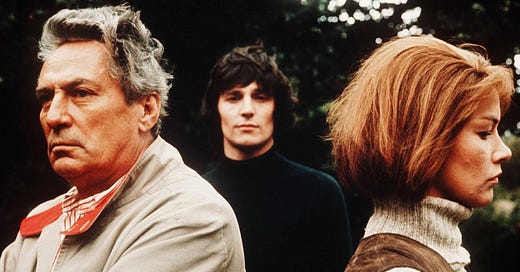



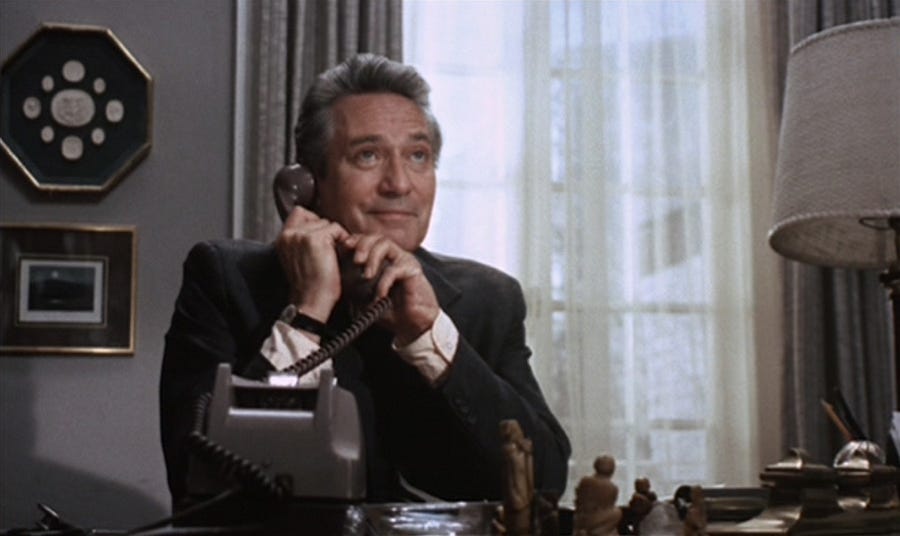
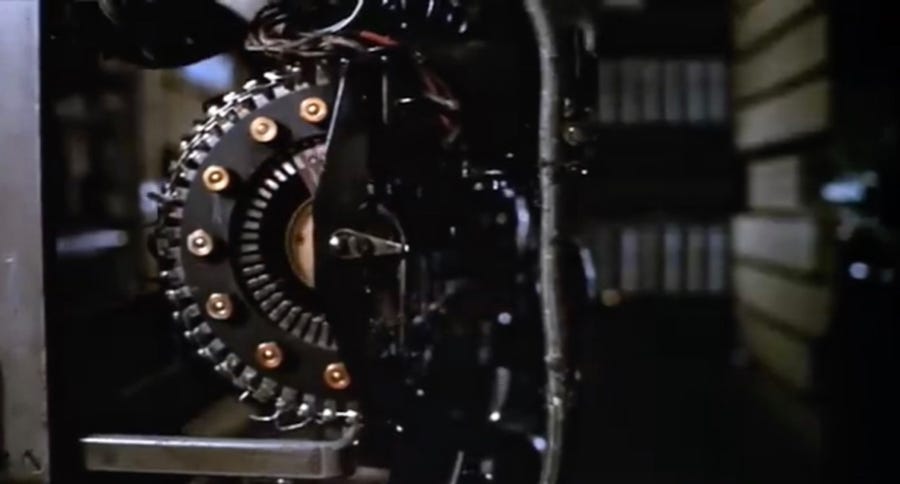
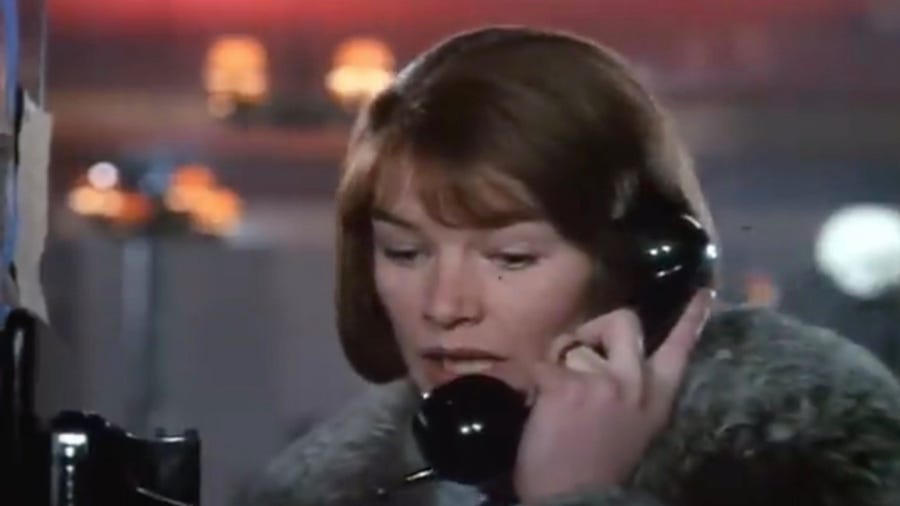
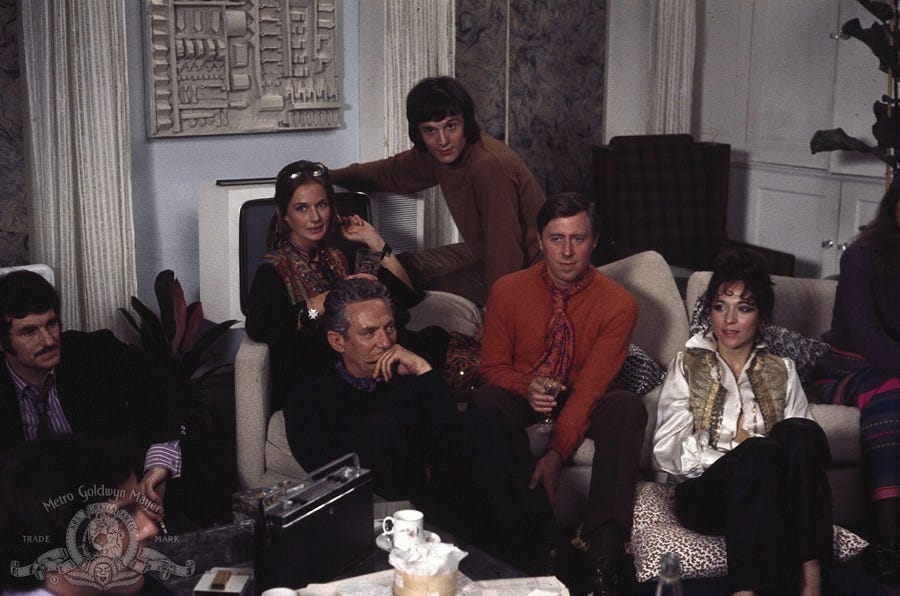
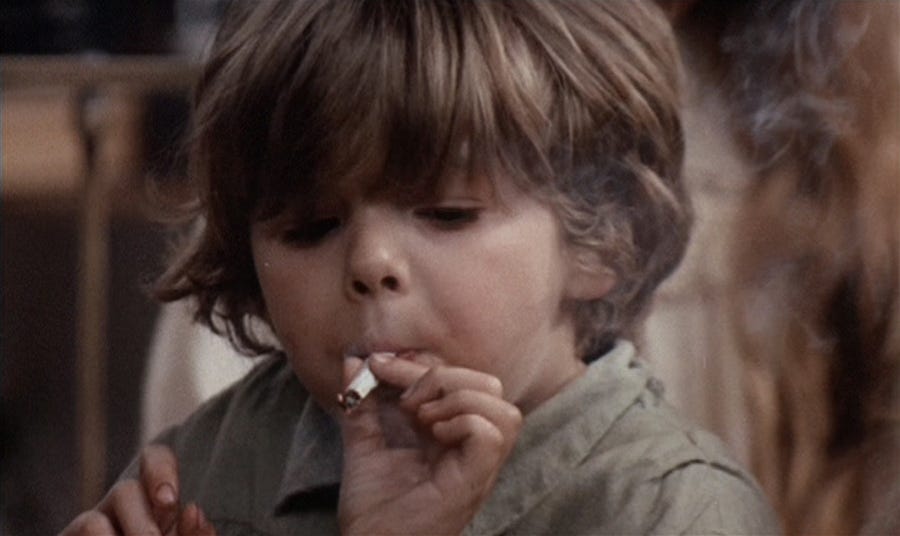
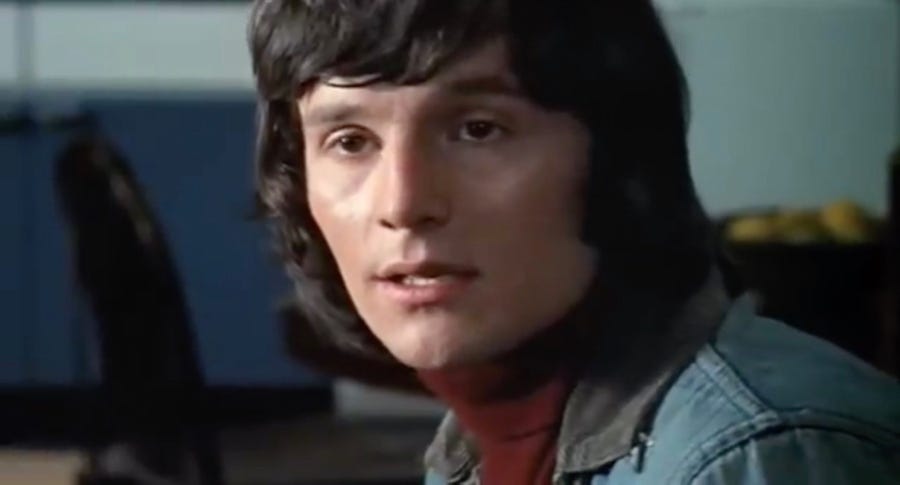
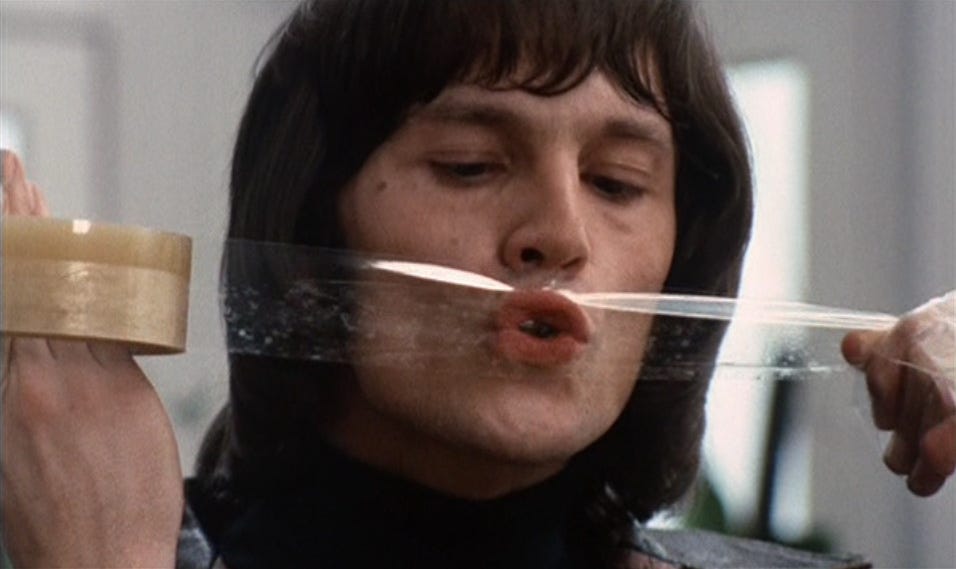
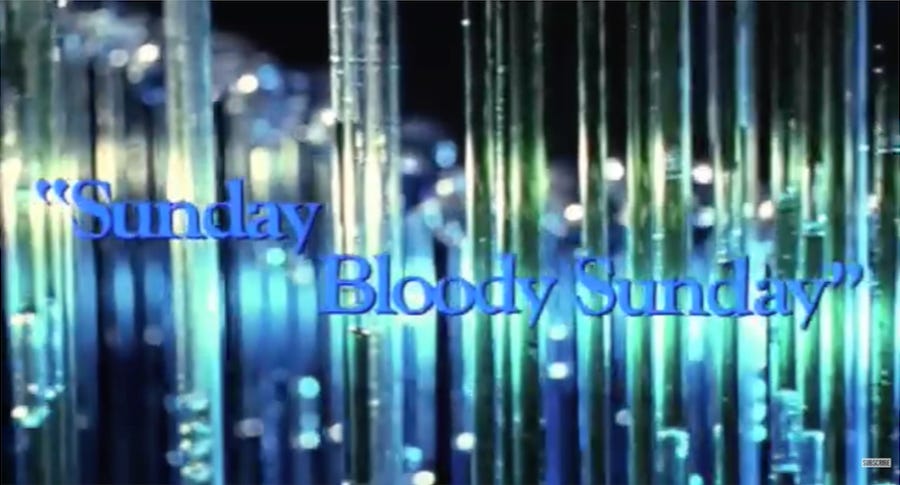
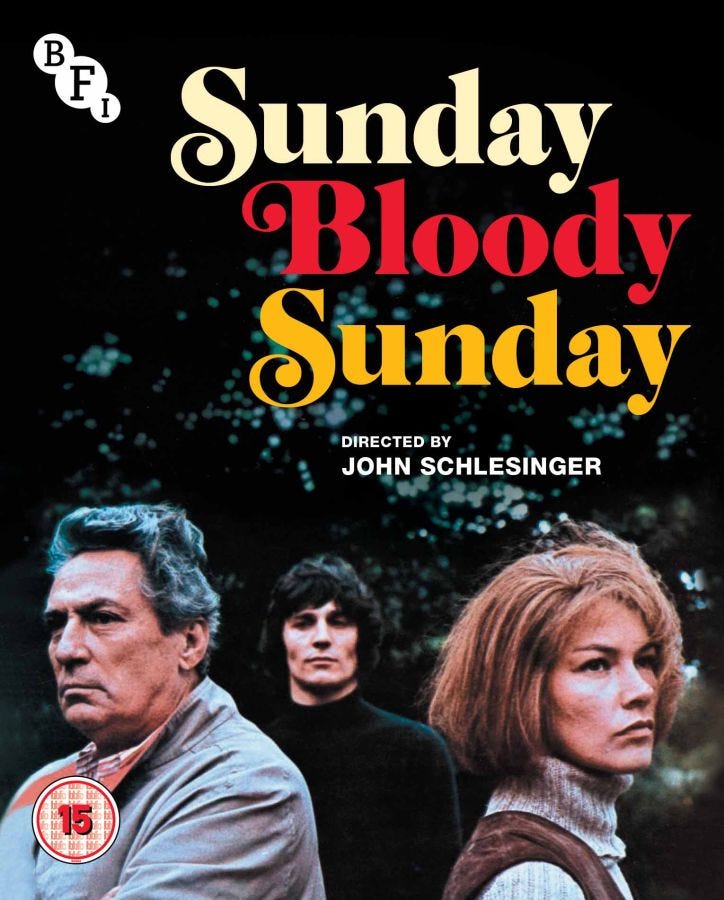
This is a movie not heard about in years. One I loved and you're right, surely the opposite of suburbia?
A John Schlesinger film? Most would jump to Midnight Cowboy, Darling and Marathon Man but I always thought this was one of his gems. Glenda Jackson and Peter Finch...beautiful yet subtle, a fabulous choice here Luke, thank you.